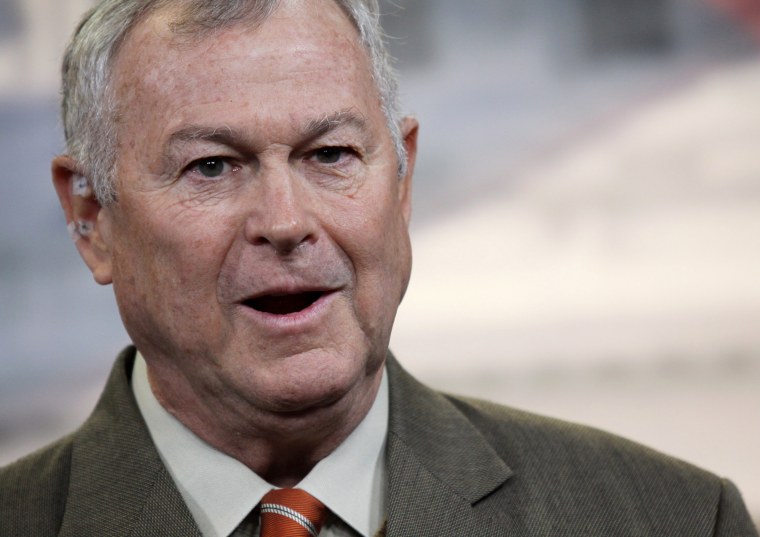In a closed-door event in 2016, House Majority Leader Kevin McCarthy (R-Calif.) told his Republican colleagues, "There's two people I think Putin pays: Rohrabacher and Trump." The latter, of course, was Donald Trump, the presidential candidate the Kremlin was eager to see in power; the former referred to McCarthy's fellow Californian, Republican Dana Rohrabacher.
The House GOP leadership later said McCarthy was kidding when he made the comment, but the joke didn't come out of nowhere: Rohrabacher has long been Vladimir Putin's favorite congressman. The New York Times reported a year ago that the Kremlin considered Rohrabacher so valuable that the FBI warned the congressman in 2012 that Russia considered him "an intelligence source worthy of a Kremlin code name."
It looks like Moscow is going to need a new friend on Capitol Hill. The Washington Post reported over the weekend:
A Republican congressman known for his outspoken support for Russian President Vladimir Putin narrowly lost his Orange County, Calif., seat after 15 terms, a defeat that helped Democrats further solidify their House majority.Democrat Harley Rouda, a real estate executive, beat Rep. Dana Rohrabacher in one of the state's most closely watched congressional races, the Associated Press projected on Saturday. Rohrabacher's strong identification with President Trump and his unabashed support for Russia had made him ripe for a challenge in an affluent district that went for Hillary Clinton in 2016.Rouda had 109,591 votes to Rohrabacher's 101,081 votes, with 52 percent of the vote to the Republican's 48 percent, according to the AP.
California has obviously earned a reputation as one of the nation's "bluest" states, but it's important to acknowledge the fact that Rohrabacher is a 30-year congressional veteran, representing a southern California district where registered Republicans outnumber registered Democrats by a double-digit margin. He'd never really been in jeopardy before this year.
And yet, Rohrabacher lost anyway.
Part of this is very likely the result of the GOP congressman's unsettling posture toward Russia, and Rohrabacher's alliance with Putin's other pal -- Donald Trump -- didn't strengthen his electoral position, either.
But there's another arc to the results, having to do with changes to the political landscape in the Golden State. The L.A. Times reported:
...Republicans will hold, at most, 11 of California's 53 seats in the House. Overall, Democrats are now in a position to make the greatest gains their party has seen in the chamber since Watergate."This is more than just a bad year," said Mike Madrid, a GOP political strategist. "This is essentially a realignment in California politics, and the traditional base that has served the Republican Party no longer exists."
In this year's midterm elections, Democrats have already flipped three California seats from "red" to "blue." There are still three more races that haven't yet been called, each featuring vulnerable GOP incumbents. Though final tallies are still coming together, a Democratic candidate is currently ahead in one of the three.
